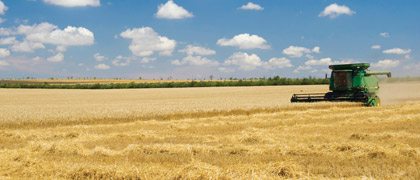Misconceptions About Ag Debunked by New Research
Farming in Canada is not what many think it is, according to Realities of Agriculture in Canada — A sector of innovation and growth. This new report from the Canadian Federation of Independent Business shows that Canadians have many misconceptions about agriculture, including that it is shrinking, harms the environment and isn’t innovative. It also indicates the perception of family farms becoming extinct. The report outlines the following realities: Agriculture is innovative and modern, the sector is growing, farmers work to protect the environment and farms are staying in the family.
Here are some quick stats that tell the story. One-in-four farmers plan to adopt value-added initiatives, 22 per cent plan to diversify into other commodities and 12 per cent plan to specialize their operations. Farmers are also looking to grow their business, with 44 per cent planning to expand their operation within the next three years. Additionally, 95 per cent of farmers help protect the environment, with 63 per cent investing in more energy-efficient or environmentally friendly equipment, machinery or vehicles. Another 61 per cent are better managing hazardous products, 60 per cent are protecting water sources and waterways and 56 per cent are adopting energy conservation practices. Last, nearly one-in-three farmers plan to transfer their business in the next three years. Of those, 83 per cent plan to transfer their business to a family member.
Canadian Scientists Help Sequence the Canola Genome
With more than 100,000 genes, canola has a massive genome, and Isobel Parkin, an Agriculture and Agri-Food Canada researcher from Saskatoon, helped to sequence it. Led by Boulos Chalhoub from the National Institute for Agricultural Research in France, Parkin was part of an international team of scientists from 30 research institutes from all regions where the crop is produced. The sequencing of canola’s genome will provide researchers with unique evolutionary insights and new tools for plant breeders. “Canada’s contribution was an essential component of the research, assisting with the complicated task of assembling the canola genome and providing access to the genome for one of the ancestral parental species,” Chalhoub says. Parkin adds, “The genome sequence of canola has uncovered the complexities which define this important crop. This knowledge will prove invaluable for making future agronomic improvements.”
In the process, the team gained ground-breaking knowledge about the origins of crop species that will help accelerate on-going breeding efforts in the crop — “contributing to sustainable increases in oilseed crop production to meet growing demands for both edible and biofuel oils.” Canola, one of the most recent plant species, has a unique origin. The first Brassica napus plants originated just a few thousand years ago from unintentional crosses between European cabbages and Asian turnips. Because all flowering plants originated from such events (but in most cases millions of years ago) the canola genome provides unique insight into the early formation of new species in plants. Unlike many other plants, canola has retained almost all of the genes of its two parental species. Canola, with its bright yellow flowers, is a familiar sight on the Canadian Prairies; grown on more than 20 million acres in 2014, it represents a significant contribution to the agricultural economy. According to the Canola Council of Canada, “Canadian-grown canola contributes $19.3 billion to the Canadian economy each year.”














